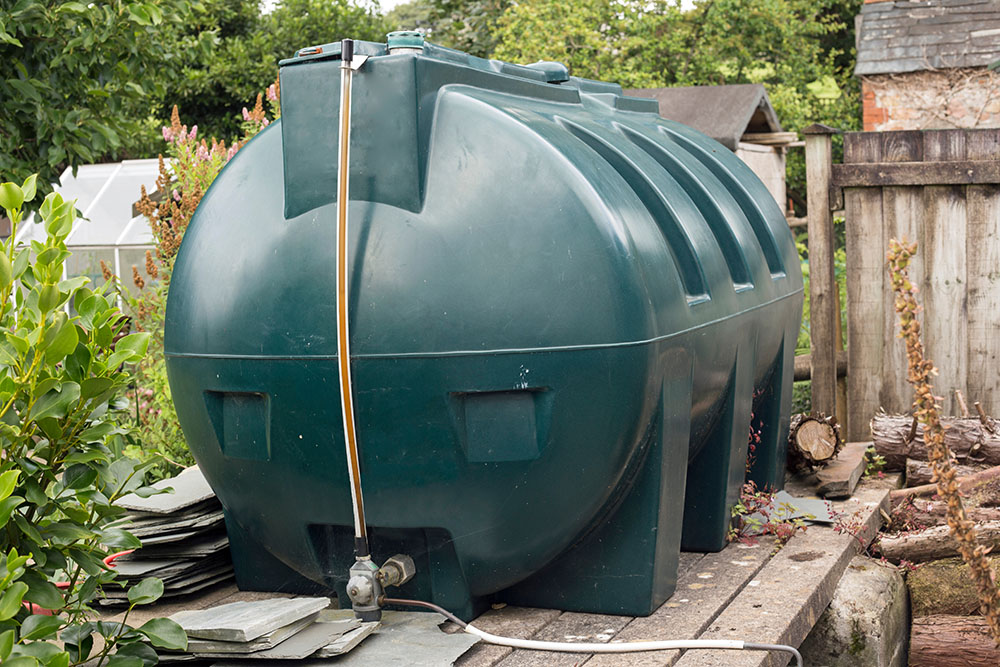How Common Are Oil Spills In Domestic Properties?

CONTENTS
- What oil spills can occur at home?
- How common are oil spills in homes?
- How can oil spills affect domestic properties?
- How to prevent oil spills at home?
- What to do when oil spills at home?
- How your insurance can assist during an oil spill
- Frequently asked questions
- Get in touch
Oil spills are not limited to industrial settings or the ocean. They are a frequent threat to residential areas with private oil tanks, with the potential to cause significant damage to gardens, contaminate drinking water, and disrupt households.
At ICE Cleaning, we offer oil cleaning services for domestic and commercial properties. Whether you have an oil spill from your heating oil tank at home or experience a leak in the workplace, we can help restore the environment.
Read on to understand the frequency of these oil spills and prevent their occurrence.
What oil spills can occur at home?
Oil spills within domestic settings are more common than one might think, posing risks to our homes and the environment. According to Aviva, there was a 48% increase in oil leak claims between 2019 and 2020.
From heating systems to the kitchen, various oils can find their way onto floors and surfaces, requiring immediate attention.
Understanding the types of oils commonly involved and the typical sources of these spills is crucial for effective management and prevention. The most frequent oil spill incidents in homes involve:
- Cooking oils: These include vegetable oil, olive oil, and other cooking fats that can spill during food preparation or accidentally leak from containers.
- Fuel oil: Homes using oil-fired boilers or heaters may experience leaks from storage tanks or supply lines.
- Lubricants: Commonly used in household machinery like lawnmowers or door hinges, lubricating oils can also lead to stains if spilt.
How common are oil spills in homes?
In the UK, heating oil is a common energy source in rural areas where gas mains are unavailable. This reliance on oil tanks for heating purposes increases the risk of spills.
While comprehensive data specifically outlining the number of residential oil spills per year is scarce, insights from environmental agencies highlight that several hundred pollution incidents involving home heating oils occur annually across England alone. This is often due to:
- Ageing infrastructure: Older tanks or those not regularly maintained are at higher risk of failure, leading to leaks or spills.
- Overfilling: Not monitoring levels during delivery can result in overflows - a common cause of spillage.
- Natural disasters: Flooding or extreme weather conditions can damage tanks or pipework, causing leaks into surrounding soil or waterways.
How can oil spills affect domestic properties?
An oil spill within a domestic setting can lead to extensive damage beyond mere surface stains. If heating oil seeps into floorboards or foundations, it can compromise the structural integrity of a building.
If this oil escapes into the local environment, it could contaminate soil and local drinking water. Properties affected by oil spills may also see a decrease in market value due to potential buyers' concerns about residual contamination and long-term damage.
How to prevent oil spills at home?
If you have an oil tank on your property that you use for heating, you must take extra care to contain spills. You can prevent oil spills from occurring by doing the following:
- Schedule maintenance checks on heating systems and appliances
- Schedule annual inspections by qualified technicians
- Invest in high-quality storage tanks
- Opt for tanks designed with materials offering protection from corrosion and physical damage
- Consider secondary containment systems like bunds
- Ensure someone responsible is present during fuel deliveries
- Follow safety guidelines recommended by environmental agencies
What to do when oil spills at home?
Acting swiftly and appropriately during an oil spill is crucial to control serious risks. The first action upon discovering an oil spill should be trying to contain it.
Do not clean it yourself, but take measures to prevent further spread. Use absorbent materials such as sand or cat litter around the perimeter of the spill.
It is crucial to seek help from oil cleaning experts when experiencing an oil spill at home. These materials can help in containing the spread until professional help arrives.
It is also essential to ventilate the area well, especially for indoor spills, by opening windows and doors. This helps dissipate any harmful fumes that might be emanating from the spilt oil.
How your insurance can assist during an oil spill
Navigating the complexities of insurance claims following an oil spill requires knowledge of what is covered, the process for filing a claim, and how to mitigate further damage.
After discovering an oil spill in your home, you must review your insurance policy details. Not all policies cover oil spills, so it is essential to know where you stand before proceeding.
Some insurers provide coverage under general accidental damage, while others might require specific add-ons or separate environmental liability coverage.
If you are covered for such incidents, notify your insurer immediately after confirming or suspecting an oil spill at your property. Early notification helps prevent any disputes about the timing of events or the extent of damages later on.
Provide detailed information about the incident along with photographs if possible – this will support your claim by illustrating the severity and scope of the spill.
Additionally, homeowners must also consider potential legal implications arising from domestic oil spills if contamination affects neighbouring properties or local environments.
In such cases, you should be seeking expert advice from legal and environmental experts. By taking prompt action with specialist cleaning services, homeowners can navigate this daunting experience more effectively whilst ensuring compliance.
Frequently asked questions
How common are oil spills?
Oil spills at home are not everyday events but can happen, especially in properties relying on older oil heating systems.
Where is the most common place for oil spills?
The most frequent spot for an oil spill is near or around the home's heating system and its storage tank.
What locations are vulnerable to oil spills?
Homes with outdated infrastructure or those lacking regular maintenance checks face a higher risk of experiencing an oil spill.
Are oil tanks covered by house insurance?
Some insurers cover them; others do not. Always check your policy details closely to know where you stand.
Get in touch
For thorough oil spill clean-up services, rely on the team at ICE Cleaning. We can assist with spills that include kerosene, transformer oil, gasoline, diesel, or hydraulic fluids. Our services come with environmental consultation to ensure the safety of the local ecosystem.
To learn more about our oil remediation services, get in touch with our team today at 0208 066 0360 or enquiries@icecleaning.co.uk. We offer emergency cleaning services across the UK, operating 24/7, all year round, to keep your properties safe.

Speak with me today,
I’m here to help
By asking you a few questions either via phone or email I can immediately provide a realistic estimation of the cost.

Why choose us?
- Cater to a wide variety of cleaning situations
- Nationwide coverage, available 24/7
- Cater to commercial and domestic clients
- Free survey provided prior to quotation
- Emergency response team
- Offer a bespoke service designed to suit all your needs
- All technicians hold professional health and safety qualifications, including BICSc, IOSH, Dewpoint Professional & Safe Contractor
We’re fully accredited
We place best practise, professional expertise and health and safety at the core of our business. We’re fully compliant with all legal obligations. You can view a list of our accreditations below, or visit our Health & Safety page for more information.











-RGB-small.1707319151.jpg)




















